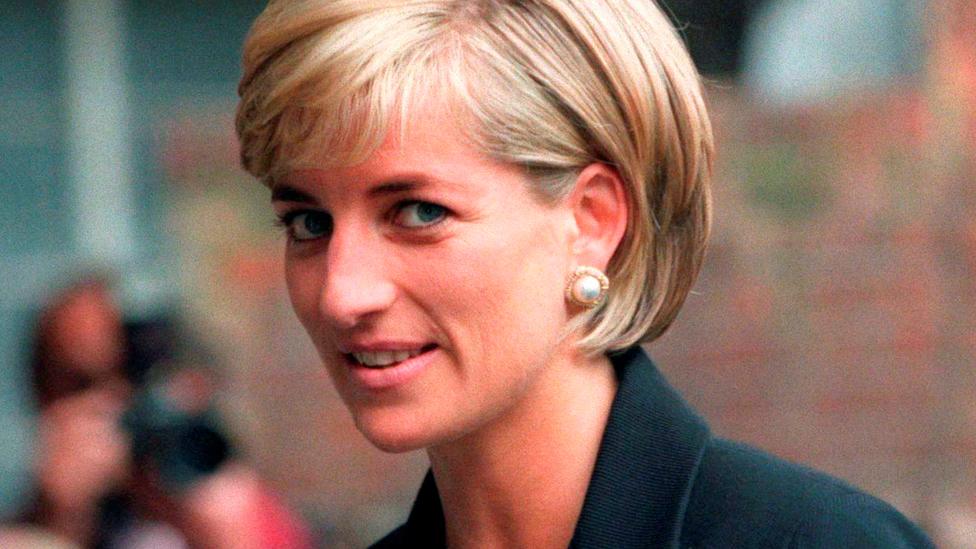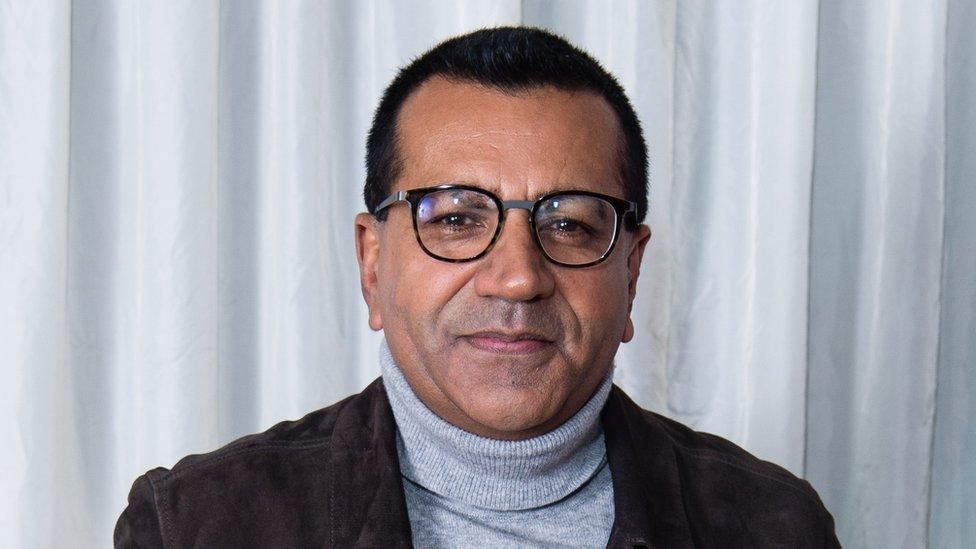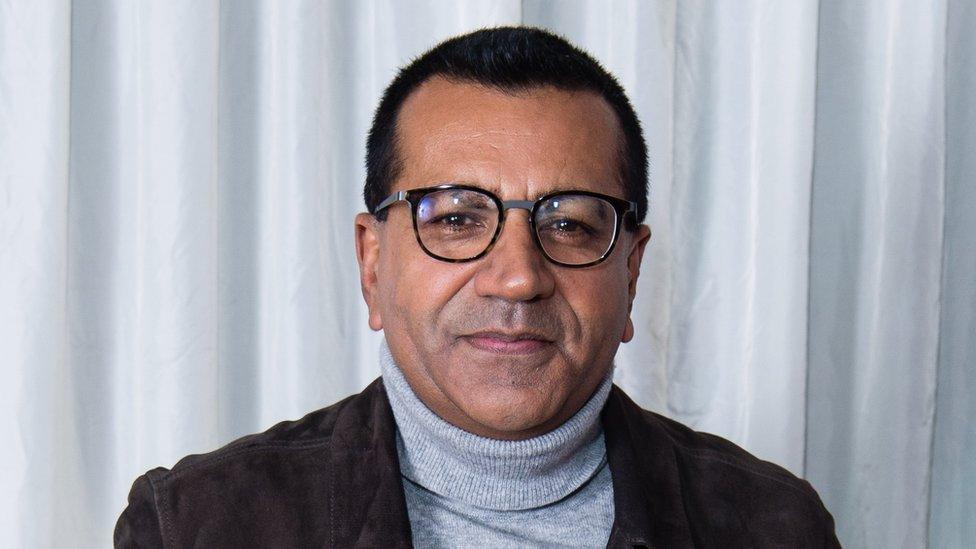Princess Diana interview: Designer Matt Wiessler 'angry' at BBC treatment
- Published

Martin Bashir's Panorama interview with Princess Diana was watched by 23 million people in 1995
A graphic designer at the centre of a furore over Princess Diana's 1995 Panorama interview has said he was "angry" at the "utterly unfair" way he was treated by the BBC.
Matt Wiessler has said he was asked by interviewer Martin Bashir to create mock bank statements that are claimed to have helped secure the exclusive.
He said he was "made the scapegoat" in a subsequent internal inquiry.
The BBC has said it will hold a new "robust and independent investigation".
The 1996 internal inquiry, led by the BBC's then head of news Tony Hall, found that Bashir was "an honest man" but that Mr Wiessler would not work for the BBC again, according to documents obtained by journalist Andy Webb, external under Freedom of Information [FOI] laws.
'I threw in the towel'
"I was a news and current affairs designer/director," Mr Wiessler told BBC Radio 4's Today programme on Tuesday. "That work pretty much dried up. After two and a half years or so, I threw in the towel and I left London.
"It's a bit like blaming the pen for writing a nasty letter. I couldn't believe it when I saw that FOI release. I was absolutely gobsmacked that in a board of governor meeting that was there to look into what Martin had done, I was made the scapegoat.
"I don't know how you can plausibly tell a story that a graphic designer is to blame for using copied documents as forgery, and I've been living with this for 25 years. And when I saw this decree that went out... I was pretty angry a couple of weeks ago when I saw that, because I thought it was utterly unfair."
Mr Wiessler said he didn't know what the fake statements would be used for at the time, and only realised there was a connection after the interview was broadcast.

Mr Bashir is recovering from heart surgery and complications from Covid-19
The late princess's brother Charles Spencer has said he would not have introduced Bashir to his sister if he had not seen the documents, which purported to show that two senior courtiers were being paid by the security services for information on Diana.
Earl Spencer has described the BBC's initial internal inquiry as a "whitewash".
Referring to Lord Hall, who went on to become BBC director general, Mr Wiessler said: "People in his position who are on executive salaries, when push comes to shove and there is a real issue, they shouldn't stand by the big scoop, they should stand by the truth. That's why they get paid a lot of money."
In a statement, Lord Hall told the Today programme the focus of the original investigations was on whether Princess Diana had been misled. He said this - and any new issues raised - would no doubt be looked at by the BBC's new inquiry.
'I'm a nobody'
Mr Wiessler added: "I want a public broadcaster now to say what is the right thing to do for everyone involved, look at the damage that it's done, and certainly say sorry publicly. My children know that people call me a forger. I was an award-winning graphic designer."
Asked why he hadn't spoken out earlier, he replied: "Because I'm a nobody. Who would I speak to? I had to do something to reinvent myself, start a new life. I moved 250 miles away from London. And it also affects your confidence."
He added: "The person that needs to come forward is Martin Bashir… He's the only one that has the answers."
The BBC has said Bashir, now the corporation's religion editor, is unwell and unavailable for comment.
"Martin Bashir is signed off work by his doctors - he is currently recovering from quadruple heart bypass surgery and has significant complications from having contracted Covid-19 earlier in the year," a spokeswoman said.
Tim Davie, who took over from Lord Hall as director general in September, told a conference on Tuesday: "We will get a very robust independent investigation done."
The BBC has apologised for the faked statements, but has insisted they played "no part" in Diana's decision to take part in the interview, in which she famously spoke about the Prince of Wales's relationship with Camilla Parker-Bowles, her own infidelity, and cast doubt on Charles's suitability to be king.
A spokesman for Prime Minister Boris Johnson said an independent investigation was "the right course of action".
"As a public service broadcaster we expect BBC journalists to adhere to the highest standards," the Number 10 spokesman said.
Mr Wiessler will also be seen in the second part of an ITV documentary to mark the 25th anniversary of the interview at 21:00 GMT on Tuesday.

Follow us on Facebook, external, or on Twitter @BBCNewsEnts, external. If you have a story suggestion email entertainment.news@bbc.co.uk, external.
- Published9 November 2020

- Published7 November 2020

- Published3 November 2020

- Published22 October 2020
